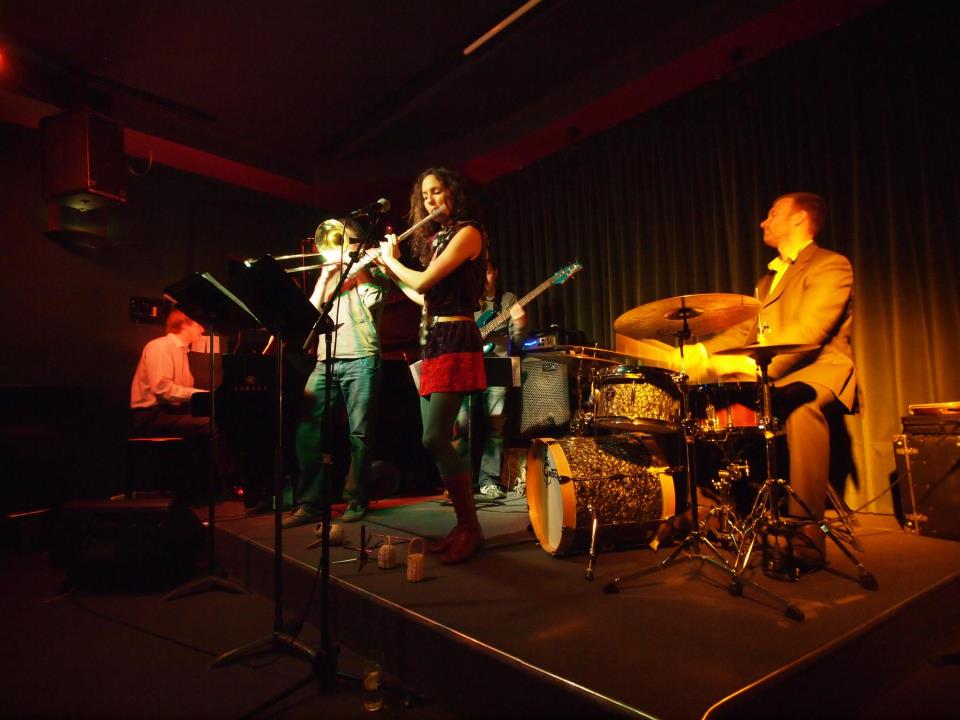There is a persistent stereotype around Brazilian music, that often reduces it to a kind of soundrack for summer leisure; it’s the whole ‘sex-and-drinks-and-bossa-nova’ perception of music evoking images of white sandy beaches and women in bikinis and tropical cocktails and swaying samba. Of course, as it often happens with stereotypes, there is a fragment of truth buried in it.
Brazilian music is not one thing; from Choro to Tropicalia and from Bossa Nova to Funk Carioca, there are countless of sub genres creating a rich tapestry of rhythms and styles – most of them incoporating elements of jazz, rock, funk or whichever other style Brazilian music famously devours. But for all this diversity, they all have something in common; they could not have been created anywhere else in the world. They are a product of very specific conditions, both natural and societal. So yes, one of the things that add to the perennial allure of Brazilian music has to do with the fact that it is a sonic reflection of a certain landscape and a certain climate and the relationship that people have with the environment, the culture(s) that are created. All of us who love Brazilian music, deep down feel this association, we know that it connects us with the natural elements, with our true self and this is what brings us peace.

Alastair Kerr knows all that – and much more. The drummer has been a champion of Brazilian music in Australia for years, exploring the richness and diversity of rhythms and melodic styles, masterfully and enthusiastically showcasing them through his outfit, Panorama Do Brasil. The group features a stellar roster of musicians, from regularsAsha Henfry(flute),Al Parsons(trombone),Matt Boden(piano) andJorge Albuquerque(bass), to special guests such as genius guitar masterDoug de Vries.
On a personal note, I’m in love with Asha Henfry’s sparkling flute and the way it’s paired with Al Kerr’s percussion, as showcased in Panorama Do Brasil’s latest album, ‘Flor de Pedra‘ – a perfect example of this mix of jazz with a wide range of Brazilian Rhythms, that has been an integral element of my personal happiness for the past couple of years. As a matter of fact, I’d like to take this opportunity and urge you to stop reading this post and do yourself a favour: get your hands on this album.
Welcome back. The album you just purchased features two of Melbourne’s finest singers, themselves champions of Brazilian music: Diana Clark and Jacqueline Gawler. They couldn’t be more different – one’s approach is breezy, sunny and uplifting; the latter is mystical and seductive, her voice embracing you in a haze.

On Friday 20 and Saturday 21 April, Panorama do Brasil will feature yet another singer associated with the group – Alda Rezende. Born in Brazil and based in New Zealand, Alda Rezende could easily be her native country’s unofficial ambassador to Australasia, delivering a wide range of Brazilian music with a punch.
This kind of approach is perfect for the specific project that Panorama do Brasil is presenting this weekend, and which premiered last year at Melbourne Recital Centre: a tribute to Os Afro Sambas, one of the seminal albums of Brazilian music, showcasing the genius of Baden Powel and Vinicius De Moraes.
Which brings to mind another element that makes Brazilian music one of the most beautiful in the world, an element often missing from the stereotype: its deep reliance to the words of the cohort of Brazilian poets to evoke images of beauty and express emotions – but also to talk about the history, politics and struggle of the people. This is what makes Brazilian music so rich and fertile for exploration, and we should be grateful that we have people like Al Kerr and Alda Rezende among us, to bring this beauty to our ears.


